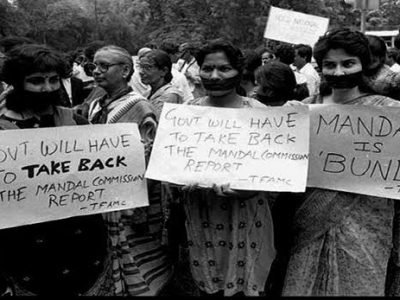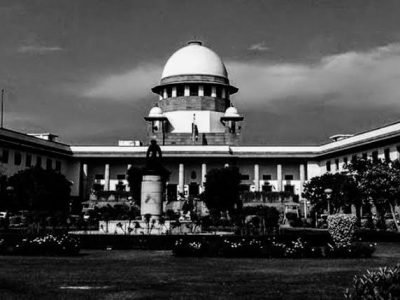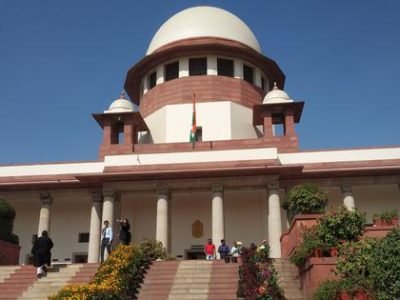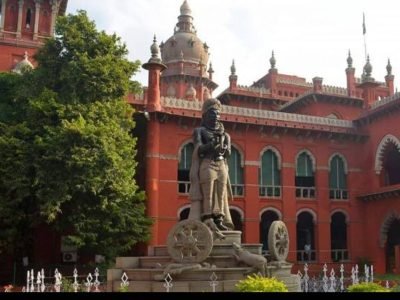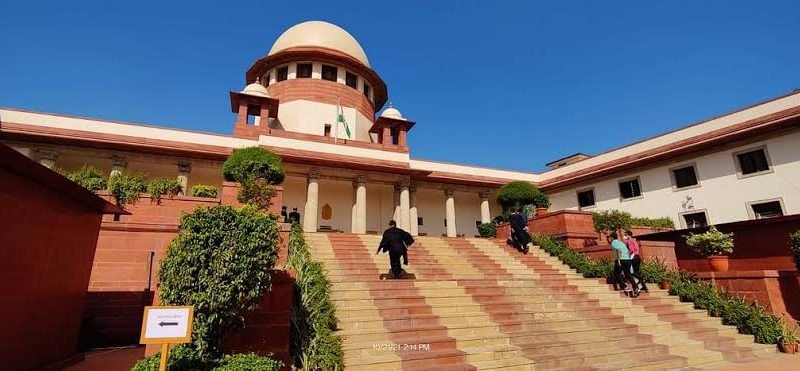
Author: Abhyudaya Chandra BBA.LLB(H.) 3rd Year at Amity University Madhya Pradesh.
Naveen Kohli v. Neelu Kohli (as decided on March 21st, 2006)
Introduction
Marriages in India are consistently viewed as something other than an association, truth be told as characterized, relationships in India are considered a sacrament. For the reason that the establishment of marriage is considered so hallowed, something like separation to be acknowledged and given legitimacy and social acknowledgment is a serious large advancement. Separation Law in India actually follows the philosophy that just in the instances of outrageous issues, should relationships be broken up and that too solely after each and every method for reconstitution of the association is depleted[1].
Marriage is a commended joining between two individuals promoting collaboration and agreement. Yet, this lawful relationship doesn’t regularly bring about a superior and more secure present for them, bringing about separation. A separation can be caused because of a couple of reasons and can be either a common separation or a challenged separation[2].
The Hindu Marriage Act, 1955 was the primary focal sanctioning which upset the wedding laws and accommodated separate and other marital reliefs under different conditions. It has furnished both a couple with reasons for separation under Section 13[3]. Numerous reasons for separation have been distinguished, defined and remarked upon in the Act and different Supreme Court Judgements. In spite of the fact that it was recommended by the law commission, for the most part, there are three hypotheses in which the reasons for separation are arranged. They are named as the Offense hypothesis, the Mutual Consent hypothesis and Irretrievable Breakdown of Marriage Theory.
Essential Details of the Case:
- Bench: B.N. Agrawal, A.K. Mathur, Dalveer Bhandari
- CASE NO.: Appeal (civil) 812 of 2004
- PETITIONER: Naveen Kohli
- RESPONDENT: Neelu Kohli
- DATE OF JUDGMENT: 21/03/2006
- BENCH: B.N. AGRAWAL, A.K. MATHUR & DALVEER BHANDARI JJ.
FACTS OF THE CASE
The lawsuit that led to this appeal was filed on January 9, 1997, requesting divorce and annulment of marriage with the prayer, “Liberation of the Petitioner (Spouse) from Marriage Relationship”[4].
The applicant, Naveen Kohli, married Neelu Kohli on November 20, 1975. Three sons were born during the time of marriage[5]. According to the plaintiff, the defendant was an angry woman with disrespectful behavior. He noticed that the defendant was behaving inappropriately and found him in a compromising position with Biswas Rout. Her husband filed for divorce on charges of “cruelty” and the Court of First Instance noted the specific findings of a woman who mentally, physically, and financially abused the applicant. The decision to dissolve a marriage was ratified by the Court of First Instance under Section 13 of the Hindu Marriage Law[6].
The respondent appealed to the Supreme Court and The Allahabad High Court had evidence that the Court of First Instance had not properly assessed. The finding that the petitioner lived immorally with another woman was registered by the Supreme Court. On this basis, this act was deemed unlawful and unjustifiable in the sense of Article 13 (1) (A) of the Hindu Marriage Law, and the divorce claim was rejected.
Claim Of The Petitioner
- Filed petition under Hindu Marriage Act, 1955 for divorce.
- Cruelty of the Respondent
- Special leave petition under Article 136 Of The Constitution Of India.
- Immoral behavior.
- Filed Civil Suit No. 1158 of 1996.
Claim Of The Respondent
- FIR against the petitioner under § 420/467/468/471 of I.P.C.
- FIR against Litigant under § 379/323 of I.P.C.
- Additional complaint under § 498A/323/504/506 of I.P.C.
- Filed a complaint under § 397/398 of Companies Act before The Company Law Board.
- Filed for maintenance under § 24 of Hindu Marriage Act, 1955.
- The petitioner has Smt. Shivangi as his concubine.
Issues Raised
- Did the defendant cruelly handle the plaintiff?
- Did the defendant cruelly treat the plaintiff with unpleasant behavior ?
- Did the defendant make false statements against the plaintiffs?
- Immorality conduct with Biswas Rout?
- Whether Smt. Shivanagi lived with the applicant as a concubine?
Final Judgment
It is believed that marriage is destroyed after the hope of salvation. The court ruled that the intrigue and clear interest of all the parties concerned, lay in the legal recognition of this fact that despite the wife does not agree to divorce by mutual consent and seems to plan to live in sorrow Only to turn the other half’s life into a desperate demon is the machinations found in the hidden marriage breakup[7]. Maintaining marriage fraud is seen by law as increasingly useful for unethical behavior and tends to be more biased over enthusiasm than marital breakdown. Failure to acknowledge separation in such circumstances was seen as bad for the sessions. If they allow separation, sooner or later, both mentally and internally, they can settle down and start another part of their daily life[8]. From the analysis and evaluation of all the evidence, it appears that the defendant chose to live in suffering just to turn the applicant’s life into an unhappy hell. The categorical attitude and insensitivity towards the facts of this case no doubt shows that the defendant tended to treat the applicant with mental cruelty.
The defendant has filed a number of cases against the applicant, including criminal charges, and every effort has been made to torture him, even to imprison him[9].
Hon’ble Supreme Court of India saw as under :- to comprise mercilessness, the lead whined of ought to be “grave and profound” in order to arrive at the resolution that the candidate life partner can’t be sensibly expected to live with the other mate. It should be something more genuine than “customary mileage of wedded life”[10]. The lead contemplating the conditions and foundation must be analyzed to arrive at the resolution whether the direct grumbling of sums to cold-bloodedness in the marital law. Directness must be thought of, as indicated above, behind the scenes of a few factors like economic wellbeing of gatherings, their schooling, physical and psychological circumstances, and customs. It is hard to set out an exact definition or to give a comprehensive depiction of the conditions, which would comprise cold-bloodedness. It should be of the kind as to fulfill the still, small voice of the Court that the connection between the gatherings had decayed to such degree because of the direct of the other mate that it would be incomprehensible for them to live respectively without mental misery, torment or trouble, to qualifies the gripping life partner for secure separation. Actual savagery isn’t significant to establish mercilessness and a reliable course of direct perpetrating inconceivable mental misery and torment may well comprise cold-bloodedness inside the importance of Section 10 of the Act. Mental remorselessness may consist of obnoxious attacks and put-downs by utilizing squalid and harmful language prompting consistent aggravation of mental tranquility of the other party.
The Supreme Court believes that the word “cruelty” in Article 13 (1) (i) (a) of the Act is used in relation to human behavior or conduct in connection with or relating to marriage or obligations. Physical violence is not strictly necessary to describe cruelty. The persistent behavior that causes immeasurable mental suffering and torture can be violent. Mental abuse can consist of verbal abuse and humiliation through the use of foul or offensive language, resulting in constant harassment of the other’s mental peace[11]. Subsequently SC put away the judgment of the High Court and stated that the marriage between the gatherings ought to be disintegrated by the arrangements of the Hindu Marriage Act, 1955 .
Drawing from the 71st Law Commission Report, the Court emphasized that limiting the ground of separation to a specific offense or marital inability causes shamefulness where the circumstance is with the end goal that albeit none of the gatherings is to blame, or the flaw is of such a nature that the gatherings to the marriage would prefer not to unveil it, there has emerged a circumstance in which the marriage can’t be worked[12]. In the event that the marriage has stopped to exist in substance and actually, there is no justification denying separation, and afterward the gatherings alone can choose whether their shared relationship gives the satisfaction which they look for. When the gatherings have isolated and the partition has proceeded for an adequate time span and one of them has introduced an appeal of separation, it can well be assumed that the marriage has separated. Marriage in such cases turns into a lawful fiction upheld by a lawful tie. Declining to cut off that tie in law doesn’t serve the sacredness of marriage, yet just shows meager respect for the sentiments and feelings of the gatherings.
Critical Analysis
I have found in the reasoning of the High Court that laws are in such a way that ladies are getting a greater amount of the advantages and the male is defenseless in numerous issues yet the equilibrium should be kept up between companions so that no body case can be endured. Henceforth for these sorts of cases Judges are adopting helpful strategies for the most part. They didn’t utilize the law till certain breaking point, when they feel that the matter can not be settled then just they go for the pronouncement of separation, for example in two unique situations where the charges were same on the spouse that he was making actual mischief and mental torment to the wife, they tracked down that with respect to female, her maternal relatives are associated with the matter and they are making claims for the benefit of the woman, yet she isn’t consequently judges have gone for the second meeting and tracked down that the charges that were put by them on the husband are false and were placed for the situation on guidance of the relatives and attorneys of the gatherings, at that point he makes a decision to settle the case and announces separation with the consent of the women.
So we can find on account of Kohli additionally there was the distinction of the man that is on bail since, in such a case that the criminal cases were demonstrated then he will be behind the bars and what could be the public activity of them after that. Consequently for the instances of this kind we should see for the two essences of coin and afterward just go for any choice, so nobody will profess to be misconstrued.
Law and society are always interdependent. Law reflects how society is governed, and society decides what form of law looks like. In most cases, divorce cases are pending in court charged with retaliation, shame and harm – clear violations not only of a person’s right to life with dignity, but also their right to speedy justice.
REFERENCES
- Rebecca Furtado -June 28, 2016, Irretrievable Breakdown of Marriage – A Ground for Divorce? Irretrievable Breakdown of Marriage – A Ground for Divorce? – iPleaders ↑
- Diganth Raj Sehgal -August 17, 2020 Know about the stages of a contested divorce. Know about the stages of a contested divorce – iPleaders ↑
- Aman Gugnani, January 6, 2021. Breaking Down the Breakdown Theory: A New Ground for Divorce under Hindu Law (legalbites.in) ↑
- Neelu Kohli v Naveen Kohli on 07 July 2003 – Judgement – LawyerServices ↑
- Aapka Consultant – December 29, 2017 Irretrievable Breakdown of Marriage Irretrievable Breakdown of Marriage | Aapka Consultant ↑
- Cruelty – as a ground for Divorce (legalservicesindia.com) ↑
- Diganth Raj Sehgal -August 17, 2020 Know about the stages of a contested divorce. Know about the stages of a contested divorce – iPleaders ↑
- 26 Landmark judgments on Divorce in India with Head-notes and citation – CHAITANYA LIMBACHIYA ↑
- Avinash Gadhre, Cruelty – as a ground for Divorce (legalservicesindia.com) ↑
- Short Notes on Law: Naveen Kohli Vs Neetu Kohli AIR 2006 SC 1675 ↑
- AIR Online – Search Results ↑
-
Aapka Consultant – December 29, 2017 Irretrievable Breakdown of Marriage Irretrievable Breakdown of Marriage | Aapka Consultant ↑



